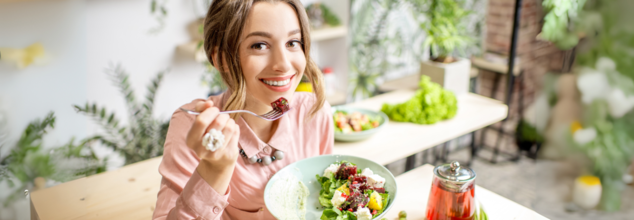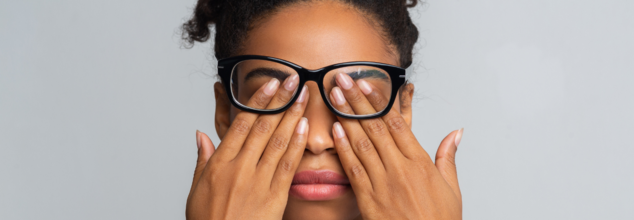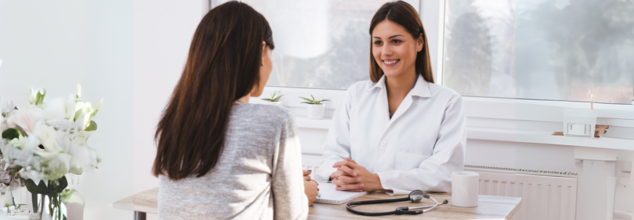
(Credit-Canva)
How Does Avoiding Meat Affect Your Skin?
Many people in recent years have adopted vegetarian and vegan diets. Studies have also shown how there are multiple health benefits to adopting a vegan diet. A 2023 study published in Cureus shows that following a vegan diet reduces the risk of cardiovascular diseases, type 2 diabetes, obesity, non-alcoholic fatty liver, and immune system impairments. However, giving up on meat can be a major task. You are essentially cutting out a major source of nutrients, but one thing that may push you towards a more plant-based diet could be skin health and the benefits of it. It can be hard to give up meat all at once, especially when there are holidays and cookouts. Instead of eating meat all the time, you can try eating more vegetables and plant-based proteins. This change can help you feel better and might even help you avoid getting sick.
How Does It Impact Your Skin?
Most of the meat that we consume today is processed, thus eating that can make your skin break out. According to Premier Dermatology this is because these meats have antibiotics and hormones that can mess with your body's hormones xxx. Red meat and chicken have something called leucine, which makes your skin produce more oil. Processed meats also have sodium nitrates, which can break down the stuff that keeps your skin firm and young. Plus, the salt in processed meats can dry out your skin. Experts say that when you stop eating meat and start eating plant-based foods, your skin can get clearer. This is because your body starts to clean out all the bad stuff.
A study from 2022 in the Journal of the Academy of Nutrition and Dietetics notes that if you don't eat the right foods, your skin can get thick. It can take longer for cuts to heal, and you can get skin problems. Plant-based foods have things called polyphenols, carotenoids, and vitamins that help your skin stay healthy. Eating lots of vegetables, olive oil, and beans can make your skin look younger and have fewer wrinkles. However, eating a lot of meat, refined grains, snacks, sugary drinks, coffee, and alcohol can make your skin wrinkle more.
Improved Overall Health and Reduced Inflammation
WebMD says that eating less red and processed meat can make you healthier. These kinds of meat can cause your body to get inflamed, which means it gets irritated and swollen inside. This inflammation can lead to diseases. When you eat foods with lots of fiber, like fruits and vegetables, instead of meat, it helps the good bacteria in your stomach. This bacterium helps you digest food and stay healthy. Also, fiber helps your body get rid of waste and toxins, which keeps your colon clean. So, eating less meat can help your body fight inflammation and keep your gut healthy.
These foods help protect your skin from damage. After a while, you should see that your skin looks healthier and clearer. Eating the right kinds of plant-based foods is the key.

Credit: Canva
Is Sleep Tourism Good For Your Health?
There’s no place like home—except, perhaps, a cozy hotel bed while on vacation.
According to Hilton’s 2025 Trends Report, an astounding 66.7% of Americans report sleeping better in hotels than at home. This trend is fueling the rise of sleep tourism, where people travel with the specific aim of improving their rest and rejuvenation.
“We travel to be inspired, but I wager that a large and growing number of us travel to get the rest that will allow us to return home restored and refreshed,” said Dr. Rebecca Robbins, a sleep scientist at Brigham and Women’s Hospital.
Vacations often provide relief from daily stressors—whether personal or professional—which are some of the biggest contributors to sleep difficulties, she explained. Additionally, hotel rooms are often designed to optimize sleep quality, offering a sanctuary free from common household disturbances such as children, pets, electronics, old mattresses, and poor air quality.
Interestingly, nearly half of travelers choose not to set alarms on vacation, allowing themselves to wake up naturally when they feel ready—an ideal scenario for improved sleep. However, not everyone finds it easy to drift off in an unfamiliar setting.
“While vacations may create the perfect conditions for quality sleep, some people struggle due to factors like jet lag or simply being in a new environment,” Robbins noted. Sleep scientists even have a name for this phenomenon—the ‘first-night effect.’
How To Manage Jet Lag?
To minimize jet lag, Robbins suggests gradually adjusting your sleep schedule by 15 minutes per day in the direction of your destination’s time zone in the weeks leading up to a trip. Once on the plane, changing your phone or watch to the destination’s time and aligning your eating and sleeping patterns accordingly can help. Exposure to natural sunlight and fresh air upon arrival also supports circadian rhythm adjustment.Additionally, the same principles for good sleep at home apply on vacation: avoid heavy meals and alcohol before bedtime, as they can interfere with sleep quality.
With sleep tourism on the rise, hotels are actively enhancing their sleep-friendly amenities. Robbins’ research suggests that sleep satisfaction is a key factor in determining whether travelers return to a particular hotel. Many establishments are now designing rooms to promote better sleep, incorporating elements such as premium bedding, blackout curtains, white noise machines, and customizable lighting.
Hilton has been at the forefront of this trend, integrating “thoughtful, science-backed solutions” to help guests wake up refreshed, according to Amanda Al-Masri, the brand’s Global Vice President of Wellness. Some locations, like the Grand Wailea resort in Hawaii and the Conrad Orlando, offer dedicated Wellness Rooms equipped with aromatherapy, circadian lighting, and recovery tools designed to foster relaxation.
Other hotels have introduced specialized sleep packages. The Conrad New York Downtown, for example, provides a Byredo travel kit featuring pillow spray, eye cream, and scented therapy balms as part of its “Goodnight Conrad” package. Meanwhile, the Tempo by Hilton brand has introduced Power Down amenities, including specialized mattresses, cooling linens, and a one-touch “Relax” button that creates an optimal sleep environment.
This global wellness movement is gaining traction. In France, the Royal Champagne Hôtel and Spa offers a Royal Sleep Experience, complete with a soundproof suite, satin eye masks, and a high-tech meditation device. Spain’s Six Senses Ibiza even employs a sleep doctor to curate personalized programs featuring meditation, sound healing, and sleep tracking.

(Credit-Canva)
Noticed Any 'Unseen' Changes In Your Eyes? This Is What It Means
We often read in poetry about how ‘eyes are the window to your soul’ and how your eyes can reveal your true intentions. While one may write these off as something people made up, it is undeniable that your eyes do reveal many things about you. People often figure out how someone is feeling from their eyes themselves, whether they were crying, or are exhausted. Similarly, your body can also give you signs when it is not doing well.
According to Mayo Clinic things like high blood pressure, sugar problems like diabetes, liver issues, and even brain problems can show up in your eyes. Even the slightest change in your eyes should be reported, especially if the white part of the eye, the sclera, changes color, or your vision gets blurry, don't wait, consult a doctor. It might be nothing, but it's always better to be safe, because eyes can warn us about other serious health issues.
Warning Sign In Your Eyes
Aneurysm
If you suddenly see double or lose your sight for a moment, it could be a sign of a problem in your brain called an aneurysm. National Health Service UK explains this is when a blood vessel in the brain bulges. If it hasn't burst, it can press on nerves that affect your eyes. You might also have pain around your eye or feel numb on one side of your face. If the aneurysm bursts, you'll get a very bad headache and neck pain. This is an emergency! You need to get to the hospital right away, because a burst aneurysm is very dangerous and can cause serious brain damage or even death.
Stroke
When someone has a stroke, their eyes can give big clues. According to American Stroke Association you might lose your vision, see blurry, or have trouble reading. Colors and shapes might look different, too. Your eyes might also feel dry or be sensitive to light. This is because a stroke messes with the parts of your brain that control your eyesight. If the stroke is bad, you might have trouble judging how far away things are, lose your balance, or even see things that aren't there. If you get help quickly, you might be able to get better, but it's important to know these signs.
Blepharitis
Sometimes your eyelids can get red and swollen. Cleveland Clinic explains this can be blepharitis, which happens when the little oil glands in your eyelids get clogged or infected. Your eyelids might get crusty and flaky, and your eyes might water a lot. You might also see blurry or be sensitive to light. If you have this, you need to keep your eyelids very clean and use medicine from the doctor. This will help get rid of the bacteria and make your eyes feel better.
Diabetes and Retinopathy
If you have diabetes, high sugar levels can hurt the tiny blood vessels in your eyes. This can cause red spots to appear. According to National Eye Institute this is called diabetic retinopathy. It can make your vision blurry, like looking through a dirty window. If you don't take care of your diabetes, you could even go blind. That's why it's important to get regular eye checkups if you have diabetes. Taking care of your sugar levels can help protect your eyes.

(Credit-Canva)
Recommended List Of Questions You Must Ask Your Doctor For Complete Healthcare Assessment
Visiting the doctor can often make people very anxious. During these times, it feels like the time is running out short. At these times there are many things you must clear out with them, but sometimes you just miss the mark. Doctors see many people, so time is short. To get the best care, ask questions. Doctors know a lot about health, and you should use that knowledge. Don't be afraid to ask about anything you don't understand. It helps you take control of your health. Asking questions means you understand your body better, and helps your doctor give you the best possible care.
What preventive care and screenings do I need?
Knowing what tests you need is key to staying healthy. Ask your doctor about screenings like mammograms or cancer checks. They know which tests are right for your age and health. They can explain the guidelines and tell you what's important for you. Don't guess about what tests you need; your doctor can tell you what to do. This helps you catch problems early and stay healthy.
How does my family medical history affect my health?
Your family's health can tell your doctor a lot about your risks. If anyone in your family had health problems, tell your doctor. They can help you understand how this affects you. They can also tell you what you can do to stay healthy. Your family's health history helps your doctor make a plan just for you. Knowing this information helps your doctor give you the best care.
Why am I taking this medication?
Many people take pills, but don't know why. Ask your doctor about each medicine you take. They can tell you what it does and how it helps. Knowing this helps you take your medicine right. It also helps you know what to expect. If you don't understand your medicine, ask your doctor. They are there to help you.
What are the side effects of this medication?
Medicine can help, but it can also cause problems. Ask your doctor about any side effects. They can tell you what to watch for. They can also tell you how your medicine might mix with other things. Knowing this helps you stay safe. If you feel bad after taking medicine, tell your doctor. They can help. Keep track of how you feel when you start a new medicine.
Can you recommend a nutritionist?
Doctors can help you find a food expert. They can help you eat healthy. Ask your doctor for a referral. They know people who can help. Eating right is important for your health. Your doctor can help you find someone to give you good advice. Don't try to figure it out on your own; ask your doctor.
How does alcohol affect my health?
Alcohol can affect your health. Tell your doctor how much you drink. They can tell you how it affects you. They can also tell you what you can do to stay safe. Being honest helps your doctor give you the best care. Don't hide how much you drink; your doctor can help you.
Why do I need this test?
Before any test, ask your doctor why. They can tell you what the test shows. They can also tell you how much it costs. Knowing this helps you prepare. It also helps you understand your health. Don't get a test without knowing why; ask your doctor.
Should I try this diet?
Talk to your doctor before changing your diet. They can tell you if it's safe. They can also help you lose weight safely. Don't try fad diets; ask your doctor. They can help you make healthy choices. They want you to be healthy.
© 2024 Bennett, Coleman & Company Limited




